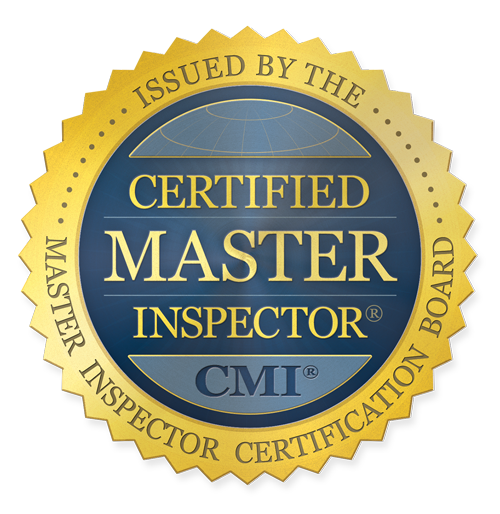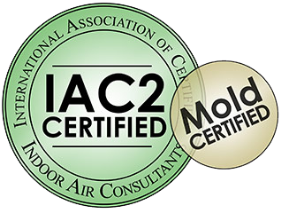Sometimes, a four-point inspection simply isn’t enough to understand the status of a home’s structure, whether insurable or to better inform real estate deals.
While the standard 4 point inspection tells you what you need to know about the roof, HVAC, plumbing, and electrical systems, a full home inspection digs deeper into other critical home systems and structures.
Difference Between a 4 Point & Full Home Inspection
A 4-point inspection takes a look at a building’s roof, HVAC, electrical, and plumbing systems. These are four of the most expensive systems to replace, the most likely to cause hazardous or costly consequences, and the systems homeowner’s insurance carriers care the most about.
4 point inspections are used to bind insurance coverage and they should never be used to determine the quality of the home being potentially bought. This is why a whole home inspection is often a better choice between the two.
When you hire a licensed home inspection company to perform a full home inspection, they cover everything included in a 4 point inspection with an additional focus on:
- Grading and drainage
Grading and drainage issues cause significant damage to a home’s foundation and structural wood via water damage. Without skilled grading and drainage features, water pools unnecessarily, and the house is at risk for flooding, water damage, and mold issues. - The foundation
Any cracks or issues in the foundation compromise the home’s structural integrity. As you can imagine, cracks or imperfections in the foundation also increase the risk of water damage or excess radon. If you’re in the market for a home, this would be critical information to have ahead of time. Foundation repairs are costly and need to be made ASAP. - Pest inspection
The exterior and interior of a home can be spruced up and look pretty – while hiding significant damage by wood-destroying organisms (WDOs) in internal walls and attic spaces. Florida has a pest-friendly climate, home to four ravenous wood-destroying insects, and conditioned spaces are a favorite for rodents and other pests. During a complete home inspection, we look for any evidence of pest damage, noting its presence and the degree of existing damage. - Insulation and ventilation
We note obvious evidence of insulation or ventilation issues if we notice them during our roof inspection. However, during a full home inspection, we look at multiple areas of the home – attic, crawl spaces, interior wall spaces, and anywhere else ventilation is required to make sure the house is adequately insulated and ventilated. - Evidence of leaks or water damage
We do a whole-home interior walk though, looking for any evidence of latent leaks or previous water damage. Former water damage may leave things spongy and soft, especially in older homes where humidity levels fluctuate dramatically. Depending on what we find, we may recommend including infrared inspection technology to hone in on current leaks in interior wall, floor, or ceiling spaces. - Interior safety features
During our walk-through of your home, garage, or any other property structures, we’ll make sure there are enough smoke and carbon dioxide detectors and that they’re installed in the right locations. We’ll also note any apparent issues with light fixtures, switches, or outlets. Our inspectors always treat homes and possessions with great respect, but we’ll report if we notice anything out of the ordinary, like interior structural issues, doors or cabinets that aren’t appropriately leveled, missing fixtures/finishes, etc. - Property condition and features
Florida is susceptible to high winds and storm/hurricane damage. While on the property, we’ll do a walkabout and red flag any unhealthy trees, overhanging or dead limbs, and other features that threaten the home or property.
Signs a 4-Point Inspection Isn’t Enough
Here are some signs you’re better off upgrading to a full home inspection:
1. The home was built more than 40 years ago
If you’re considering a home purchase and the home is 40 years old or older, odds are a full inspection is the way to go. This is especially true if the house hasn’t been upgraded or meticulously maintained.
For example, if the home has the original electrical panel or the old knob and tube wiring, odds are it also has cast iron pipes and other structural issues that are nowhere near up to today’s building code requirements.
2. You’re purchasing a home sight unseen, OR you’re waiving the inspection
Never trust real estate photographs or your real estate agent’s opinion regarding the quality of a home’s structural components and systems. We absolutely respect and honor SIP’s partnership with local real estate agents. However, they are not experienced construction professionals. You should never trust their input on the structural integrity of a home any more than you would use a non-real estate professional to handle your sales and legal documents.
If you’re purchasing a DeLand-area home sight unseen, it’s worth the small extra fee for a full home inspection to protect your investment. You need to know everything you possibly can about the home so you can opt out of the sale if repairs are beyond what you’re interested in.
While we never recommend waiving an inspection, we understand the temptation in a competitive seller’s market. That said, a waived inspection before a sale warrants a full inspection after the COE, so you know what – if anything – needs to be addressed sooner rather than later.
3. The owners can’t provide evidence of routine maintenance
We also recommend scheduling a full inspection if the home is obviously in disrepair or has been cosmetically spruced up, but the owners can’t provide maintenance documentation. You may also want to think about a full inspection if it’s obvious that a roof or siding has been replaced, but the rest of the house looks dated or has a musty smell. This is a sign that they replaced items that were obviously in bad shape and are hoping the rest of the issues won’t be noticed.
4. You’ve lived in the home for ten years or more without an inspection
Did you purchase your home ten or more years ago without an inspection, or just barely passing the 4 point inspection, without doing much to update it since then?
It might be worth it to have the entire home given the once over by a licensed building inspector. We are happy to discuss anything we find with you so you understand exactly what our notes me. The inspection report is always organized in a way that highlights the top priority items and then makes recommendations for other necessary repairs so you can prioritize the repairs in order of importance and respect for your budget.
5. You inherited a home
Inheriting a home is an amazing gift. However, in some cases, you may find you’ve inherited a bit of a money pit. Scheduling a full home inspection, especially if the property is out of state, is the only way to have a full-spectrum understanding of what you inherited so you can decide what to do from there.
Schedule a Full Home Inspection with Super Inspection Pros
Are you interested in scheduling a full home inspection? Contact Super Inspection Pros. We guarantee a 24-hour turnaround on both inspections and the resulting reports. All of our inspectors are Inter-NACHI-certified, and clients value our honest, down-to-earth approach.

